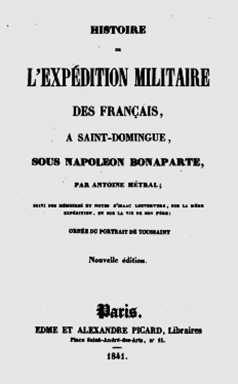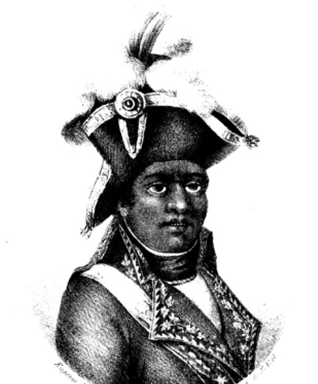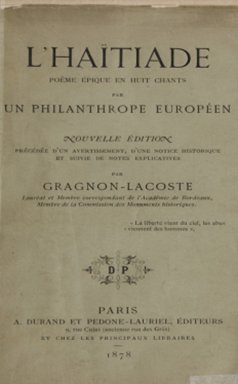"Toussaint Louverture: Man and Myth" by Gabriel Debien, Jean Fouchard, and Marrie Antoinette Menier
An excerpt from "Toussaint Louverture avant 1789," an article in Conjonction (1977). Debien, Fouchard, and Menier were renowned Haitian historians.
What [historians] Antoine Métral and Gragnon Lacoste have told us about Toussaint’s life before the [Haitian] Revolution is little more than legend. Métral said that Toussaint Louverture learned French, Latin, and a little geometry from a black man who had been taught by a monk. More precisely, Gragnon Lacoste said [the monk] was a Jesuit. He added that Toussaint Louverture learned the history of the Indes from Abbé Raynal. The truth is that neither assertion matches those by [Toussaint’s son] Isaac Louverture who, in his memoirs and notes, talked a little about his father[’s life] before 1789.
It is believed that Toussaint Louverture had been "free of the plantation" because his name is not on the lists of slaves that was recorded in 1785 in the two Bréda sugar plantations in Haut-du-Cap and Plaine-du-Nord [near where Toussaint lived]. There was a Toussaint on the plantation in Haut-du-Cap, but he was a creole and 31 years old. There was another Toussaint in Plaine-du-Nord. But he was "Nago" and 41 years old. Toussaint Bréda[, the Toussaint we all know,] was creole and at the time would have been close to 50 years old.
We can only conclude that at the time he must have been free. Either that, or [he was allowed by his owners to leave the plantation to work]. But slaves who were "free of the plantation" usually still appear on the lists of slaves. The next document was decisive. It was discovered in the registry of baptisms, marriages, and burials kept between 1778 and 1779 in the parish of Borgne. It was the only record to survive. [It says,] "After three announcements were made in parish sermons on three consecutive Sundays without any civil or ecclesiastical opposition, on Wednesday 3 September 1777 I gave the nuptial blessing on the one hand to… Toussaint Bréda, a free black living in Borgne within his rights. And on the other hand to Agathe… a black woman sold by Mr. Bergé-Laplante... Hence we know that Toussaint Bréda was free in 1776 and that he owned at least one slave whom he freed.


